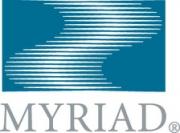You might already know that your lifestyle choices make a big difference in your individual cancer risk. Eating right, not smoking, exercising and maintaining a healthy weight, and getting enough sleep can all reduce your risk for certain cancers.
One thing you can’t control is your family genes.
Research shows that up to 10 percent of cancers are due to factors passed along from one generation to the next, parent to child. These syndromes are known as hereditary cancers.
While anyone can get cancer by chance, heredity cancers are relatively rare by contrast. Red flags in your family history can signal a genetic condition that puts you at much higher risk than exists for the general population.
Hereditary cancer develops when an altered gene (gene change) is passed down in the family from parent to child.
The abnormal gene is transmitted through the egg or sperm to children. Typically, each child faces a 50 percent chance of inheriting the altered gene.
People with hereditary cancers are more likely to have relatives with the same cancer type or a related cancer type. Family members may develop more than one cancer and their cancer often occurs at an earlier than average age. Between 5 to 10 percent of all breast cancers are thought to be inherited.
Fortunately, we live in an age where we no longer have to guess as to whether or not we carry an inherited gene that’s putting us at an extraordinary higher cancer risk. For some people, knowing about the risk and taking action is better than not knowing.
Genetic testing can tell you if you carry the gene mutations. It can help you and your health care provider make educated choices about cancer prevention and life-saving early detection strategies.
There are many other benefits to being tested too. For starters, if a mutation is identified, genetic testing and/or early cancer screening can be offered to other family members who may also be at an increased risk. The sooner testing takes place, the easier it is to manage the risk appropriately.
Red flags include a family history of:
• Ovarian cancer
• Breast, colorectal (bowel) or endometrial cancers before age 50
• A previously identified BRCA or Lynch syndrome mutation in the family
• Both breast and ovarian cancers in one individual
• Male breast cancer at any age
• Triple negative breast cancer
• Being a woman of Ashkenazi Jewish descent with breast or ovarian cancer at any age
These red flags, among others, are strong indicators of family cancer syndromes. That is, an inherited altered gene could be causing cancer within your family rather than lifestyle or environmental factors.
To see if you might be at increased risk, please visit the quick and easy Hereditary Cancer Quiz . If you find red flags in your history, talk to your professional health care provider about getting hereditary cancer screening and/or testing.
If you don’t already have a health care provider, you can find one at: http://www.myriadtests.com/finddoc.php/
Reviewed on December 7, 2012
by Maryann Gromisch, RN
Edited by Jody Smith
Article by Lynette Summerill


Add a Comment1 Comments
Not totally true---only part of the story..there are other hereditary cancers....what about Lynch syndrome...the forgotten hereditary cancer. Every bit as pervasive as BRCA, includes the same womens' cancers as B RCA plus endometrial cancer, though affects more organs, at a higher risk, affects families and affects those at a younger than average age...
January 20, 2013 - 7:53pmThis Comment